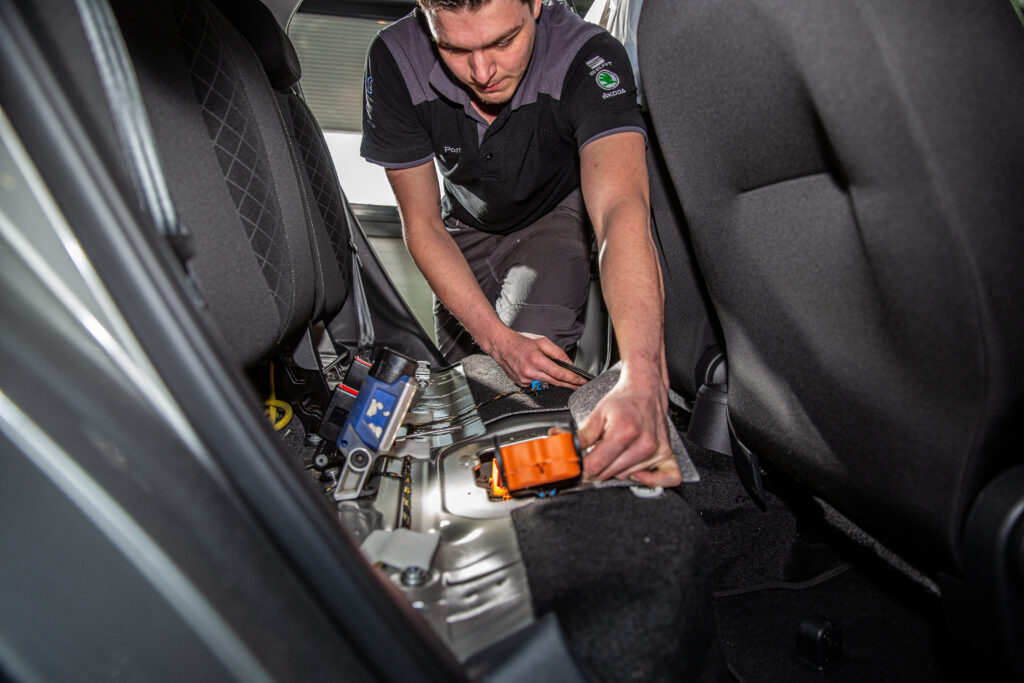In April 2022, there was a changing of the guard at ARN, when outgoing Managing Director Ingrid Niessing was succeeded by Paul Dietz “We are hugely grateful to Ingrid for her hard work and the results she achieved,” says De Bruijn. “Thanks to which there was a stable basis for Paul Dietz to smoothly take over the helm. On behalf of the board, we are confident that Paul’s ample experience, will help him take ARN to the next level. He is skilled at identifying the interests of stakeholders and, wherever necessary, knows exactly how to reconcile these interests. This was clearly visible during the annual conference. The ARN Relations Day was a resounding success and very well received by all participants.”
“Together with all recycling partners, a recycling performance of 98.7% was again achieved”
Olaf de Bruijn
ARN as a facilitator
During the past few years ARN has taken some important steps as a facilitator of car recycling. To this end, De Bruijn considers it inappropriate for ARN to play an active role in the chain itself and cites the transfer of the PST factory in Tiel in 2020 as an important illustration of this fact. In 2022, the transfer of ownership of the drainage installations also started. These were on loan to the car-dismantling companies, but ownership is now being passed on to them. As the users of this equipment, they can now make their own choices when it comes to service and maintenance. ARN remains responsible for arranging the collection of fluids. “This transferral of ownership project has been thoroughly thought-through and is expected to be completed during the course of 2023.”

Stimulating further development
ARN supports companies in the collection and recycling of end-of-life car batteries. As a result of the increasing numbers of electric and hybrid vehicles on the Netherlands’ roads, the number of collected lithium-ion batteries will increase sharply during the next few years. In collaboration with the Innovam training institute, a training course for the safe dismantling of car batteries has been developed, continues De Bruijn. Furthermore, last year investments were made in the tools that companies need to safely dismantle these batteries. “The board has created the financial leeway to stimulate the further development of the sector. This stimulation package will be worked out in more detail during the course of 2023.”
New European regulations
According to De Bruijn, the UN’s sustainability goals will accelerate the reuse of materials during the coming years and car manufacturers will be expected to play an increasingly important role in this. Current European regulations mandate the use of recycled materials in new car batteries, which will drive shifts in the business case. And this, in turn, will stimulate the development of new recycling technologies. “Given that developments in the field of batteries are moving really quickly, it is important to participate in a variety of partnerships,” he assures. “And ARN is doing just that. For example, we are participating in growth-fund proposals and we are a partner in the recycling part of what is known as the Battery Competence Cluster NL [BCC].”
Level playing field
Since 30 April 2021, with the advent of the Algemeen verbindend verklaring (Avv, universally binding obligation) a recycling fee is payable on all cars that that are registered in the Netherlands. “It’s really important to ensure that the level playing field also extends to the back end of the chain,” concludes De Bruijn. “Plans made in 2022 to link the Quality Care Disassembly, or KZD, [KZD]quality hallmark to the RDW accreditation scheme will avoid a situation in which car-dismantling companies will be competing with one other at the expense of the environment. Explicit attention will be paid to this in 2023, so that that playing field really can be made fairer.”